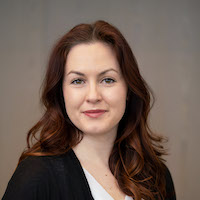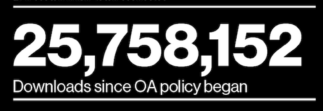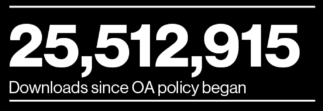 Laura Hanscom has been appointed the head of the department of Scholarly Communications and Collections Strategy (SCCS), the MIT Libraries announced today. In this position, she will lead MIT Libraries services and staff in transforming models of scholarly publishing to increase the impact and reach of research and scholarship and promote open, equitable, and sustainable publishing and access models. The SCCS head also coordinates overall collection management strategy for the Libraries’ general collections, as well as vendor negotiations and repository services. Hanscom began serving in her new role April 12, 2021.
Laura Hanscom has been appointed the head of the department of Scholarly Communications and Collections Strategy (SCCS), the MIT Libraries announced today. In this position, she will lead MIT Libraries services and staff in transforming models of scholarly publishing to increase the impact and reach of research and scholarship and promote open, equitable, and sustainable publishing and access models. The SCCS head also coordinates overall collection management strategy for the Libraries’ general collections, as well as vendor negotiations and repository services. Hanscom began serving in her new role April 12, 2021.
“Laura believes in and articulates the breadth of vision that MIT has for changing the scholarly communications ecosystem,” says Erin Stalberg, associate director for Collections. “In her prior roles here at MIT Libraries, Laura has advanced our goals of openness, equity, and transparency, and is actualizing our digital-first and open scholarship agenda. She exhibits every day how we can make this vision manifest, and I am so excited to have her continue her career here in this new role.”
Hanscom has served as interim department head for SCCS since March 2020, and prior to that, served as Scholarly Communications and Licensing Librarian for MIT Libraries since 2016. She started her library career in interlibrary loan at the London School of Economics and was Digital Repository Administrator at City University London Library. Prior to coming to MIT, she served as Scholarly Communications Librarian at Salisbury University in Maryland.
Hanscom brings to this new role a wealth of experience in scholarly communications and in pursuing the goals articulated in the MIT Framework for Publisher Contracts, the recommendations of the Ad Hoc Task Force on Open Access to MIT’s Research, and the Ad Hoc Task Force on the Future of Libraries Report. She has worked to open up scholarship and research opportunities for those traditionally marginalized, negotiated progressive text and data mining rights into contracts, and, with colleagues across the MIT Libraries, collaboratively planned and built out repository technologies in support of library initiatives.
“I have learned so much from my colleagues in SCCS and across the MIT Libraries,” says Hanscom. “I am thrilled to be able to help build upon their accomplishments and collaborate with them as we pursue a scholarly communications ecosystem with the broadest possible participation and access. By making scholarship more open and equitable, we can make it an increasingly more diverse, powerful, and effective resource for those seeking to use knowledge to make a better world.”

